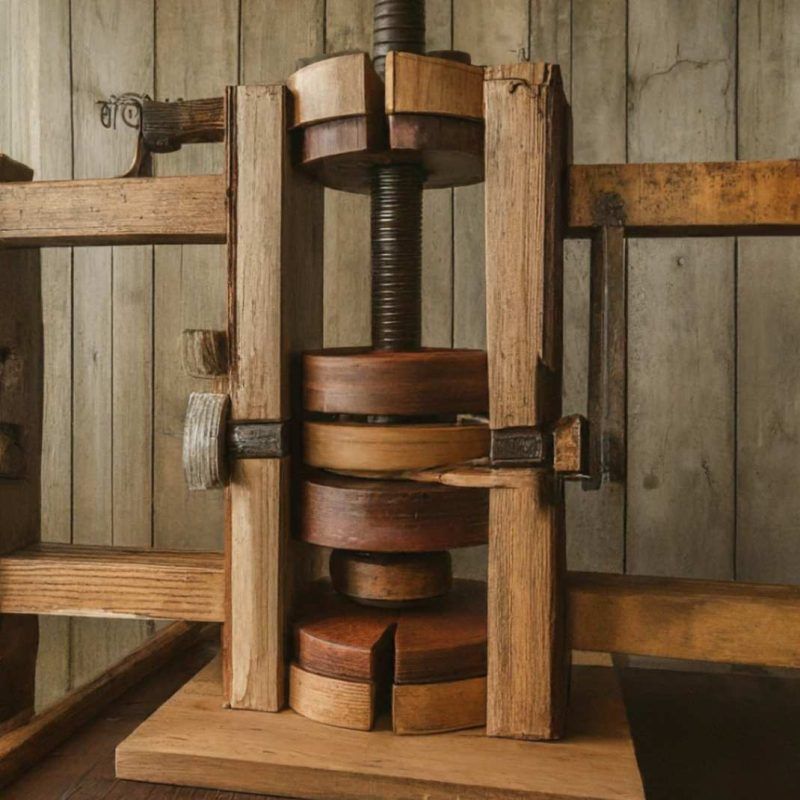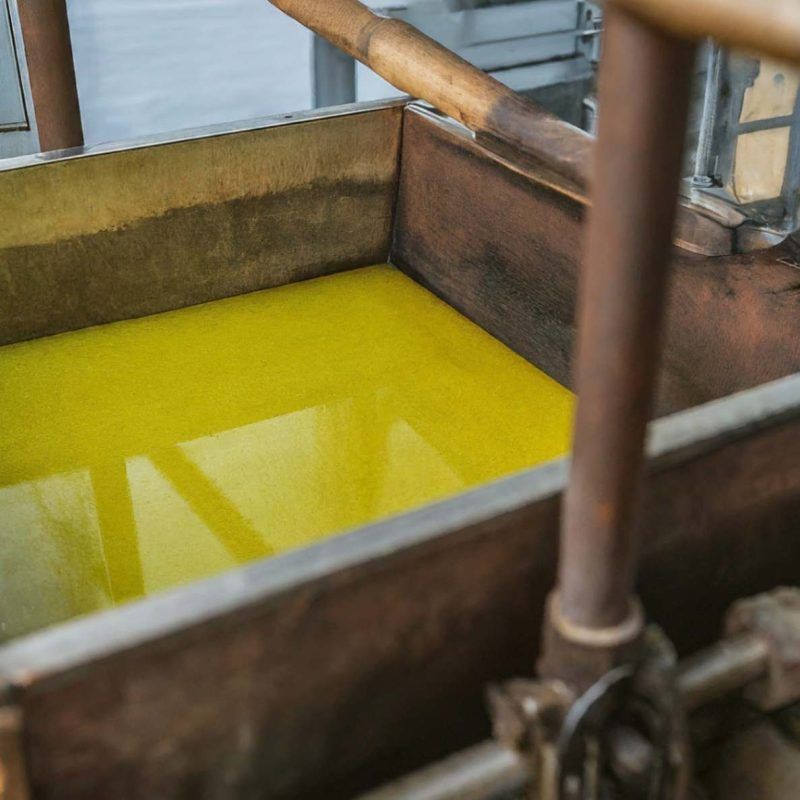The Origins of Wood-Pressed Oils
Wood-pressed oils, also called cold-pressed oils, come from old methods of getting oil from seeds, nuts, and fruits. This technique uses a wooden press to squeeze out the oil without heat, keeping the oil’s natural taste and nutrients. It has been used in many cultures because it’s simple and works well. The process involves grinding the material into a paste and pressing it to get the oil. Wood-pressed oils are valued for being pure and healthy, as they keep more important nutrients than other methods. In this article, we’ll guide you through the process of how wood-pressed oils are made.
Ancient Techniques and Practices
Ancient techniques and practices are old methods people used to do things and solve problems. This includes early farming like rotating crops, using irrigation, and making pottery and metal items. People also used natural remedies and herbal medicine. They built with stone and mud bricks, showing their building skills. These methods were passed down through generations and changed with culture and environment. They help us understand how ancient people lived and adapted to their world.
How Wood-Pressed Oils Made Traditional Method
Wood-pressed or cold-pressed oils have been used in traditional medicine for many years. This method keeps the oil’s natural nutrients and health benefits intact. These oils are valued for their purity and effectiveness in treating various health issues. For example, sesame oil is used in Ayurvedic medicine to reduce inflammation and heal the skin, while olive oil is popular in Mediterranean medicine for heart health. These oils are used in massages, on the skin, and as part of the diet. Their natural extraction process helps them keep essential vitamins and minerals that are good for health.

The Traditional Process of Making Wood-Pressed Oils
To make wood-pressed oils, you get oil from seeds, nuts, or fruits using a wooden press. First, clean and crush them into a paste. Then, put the paste in the press and squeeze it to get the oil heat used, so the oil keeps its natural taste and nutrients. The oil is then filtered to remove any solid bits. This old method is valued because it keeps the oil pure and full of nutrients. It has been used for centuries and is still known for being simple and effective.
Importance of Raw Material Quality
The quality of raw materials is very important because it affects how well the final product works and lasts. Good materials lead to better performance and durability. For example, in food production, using fresh ingredients makes the food taste better and healthier. In manufacturing, using strong materials makes products last longer. High-quality materials also lead to fewer problems and repairs, making customers happier and needing fewer replacements. Investing in good materials makes the product more successful and well-regarded.
Common Seeds and Nuts Used
Common seeds and nuts used in cooking and baking include almonds, walnuts, cashews, and peanuts. Almonds are popular because they’re versatile and healthy, often used in snacks and desserts. Walnuts have a strong flavour and are added to salads and baked goods. Cashews are creamy and mild, great for savoury dishes and snacks. Peanuts are tasty and nutritious, enjoyed as a snack or in peanut butter. Other seeds like chia, flax, and pumpkin seeds are healthy and often added to smoothies, salads, and baked goods.
The Wood-Pressing Method
The wood-pressing method, or cold-pressing, gets oil from seeds, nuts, or fruits. First, you clean and crush them into a paste. Next, you put the paste in a wooden press and squeeze it to get the oil. No heat is used, so the oil keeps its natural flavour and nutrients. The oil is then collected and filtered to remove any solid bits. This old method is simple and works well, making pure oil that keeps its nutrients and has health benefits.
How Wood Presses Work
Wood presses are used to get oil from seeds, nuts, or fruits by pressing them mechanically. First, the seeds or nuts are cleaned and ground into a paste. This paste is put into a wooden press with a cylinder and screw. When the screw turns, it presses the paste, squeezing out the oil. The oil then passes through a filter to remove any solid bits. This method doesn’t use heat, so the oil keeps its natural taste and nutrients. Wood presses are appreciated for being effective and simple.
Nutritional Advantages
Wood-pressed oils are good for you because they keep more of their natural vitamins, minerals, and antioxidants since no heat is used in making them. For example, wood-pressed olive oil is full of healthy fats that are good for your heart, and wood-pressed sesame oil has healthy fatty acids and vitamin E, which are great for your skin and immune system. These oils often have more nutrients compared to those made with heat, so they’re a healthier choice. They make a nutritious addition to your diet.
Richness in Antioxidants
Wood-pressed oils are full of antioxidants because the cold-pressing method keeps these healthy compounds intact. Antioxidants protect your body from damage caused by free radicals, which can lead to diseases and inflammation. For example, wood-pressed olive oil has polyphenols, powerful antioxidants that help lower the risk of heart disease and improve health. Wood-pressed flaxseed oil is high in alpha-linolenic acid (ALA), an antioxidant that helps the heart and reduces inflammation. The way these oils are made helps keep their antioxidants, making them a great choice for a healthier diet.
Health Benefits
Wood-pressed oils have many health benefits because they keep their nutrients and aren’t heated. They retain important vitamins, minerals, and antioxidants that are good for your health. For example, wood-pressed olive oil is high in healthy fats that help your heart and reduce inflammation. Wood-pressed sesame oil is great for your skin and immune system because it has important fatty acids and vitamin E. It often has more health benefits than heated oils, so it’s better for cooking and dressing. It helps you maintain a healthy diet.
Improved Heart Health
Wood-pressed oils are good for your heart because they have helpful fats and antioxidants. For example, wood-pressed olive oil has monounsaturated fats that lower bad cholesterol and reduce heart disease risk. These oils also contain antioxidants that fight inflammation and protect blood vessels. Using wood-pressed oils in your diet can improve heart health and lower the risk of heart problems. Their natural processing keeps these heart-healthy nutrients intact, making them a great choice for a balanced diet.


